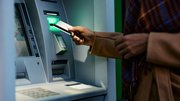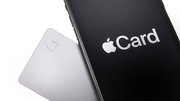News
Euro, franc happily coexist in Switzerland; many ATMs dispense both
January 8, 2002
GENEVA -- Although Switzerland is a non-member of the European Union, its residents will come into contact with the euro, Europe's new common currency, nonetheless.
Switzerland and its banks have long been comfortable dealing with money from other countries. One in five of the 7.2 million population is non-Swiss, and its three largest cities - Zurich, Geneva and Basel - are near the border with EU countries.
A large number of French, German and Italian workers cross the border daily to earn high Swiss salaries, and many Swiss go the other way on business or in pursuit of cheaper consumer goods.
Because the arrival of the euro in 12 of the 15 EU countries has left this Alpine nation surrounded by a single currency, the euro is bound to become an important part of life for its residents, even without challenging the Swiss franc, traditionally Europe's strongest currency and the country's legal tender for the foreseeable future.
Banking giants UBS and Credit Suisse ordered several hundred million euros from Germany's Bundesbank in time for the changeover, and started putting euros alongside Swiss francs in their ATMs on Jan. 3.
The banks have traditionally offered foreign currency in border regions and tourist resorts, but the biggest bank, UBS, now aims to offer euros and francs in half of its 960 ATMs by the middle of February, according to an Associated Press report.
The country's lucrative tourist trade relies heavily on travelers from EU nations, particularly Germany, and is geared up for the euro. Visitors can pay for their train tickets and many hotel rooms and meals in euros, but they can expect their change to be in Swiss francs.
Switzerland's two major supermarket chains are accepting the euro in all their stores, with a small margin added to the exchange rate.
The standard exchange rate is fairly easy for the Swiss to work out - 1.5 francs (91 cents) to the euro.
National currencies in the euro zone cease to be legal tender by the end of February. European savers who hoarded cash at home - and never declared it to tax authorities - are believed to be trying to get rid of their old currency by spending it on real estate, cars and other big-ticket items.
Analysts predicted also that some of the money under the mattress would come across the border to Switzerland. Germany and France have been carrconducting spot checks on cars crossing into Switzerland to look for undeclared cash, and several people have been detained.
But Swiss banks have noticed little rise in the number of deposits by EU residents, said Swiss Bankers' Association spokesman James Nason.
"Our banks must check out large transactions - more than 25,000 francs ($15,000) - if they don't know the customer,' Nason said. "If they suspect the money came from a serious crime they also must report that to Swiss authorities.'
Nason said, however, that it was "not up to the Swiss to decide if a person is evading tax' in another country. Under Swiss law tax evasion is only an administrative offense.
There is no sign the Swiss will adopt the euro and drop the franc, and few are expected to use the new currency between themselves, officials believe.
"The euro is not likely to be become a real 'parallel currency,' said Swiss National Bank president Jean-Pierre Roth. ``Our franc allows this country to maintain an independent monetary policy, based on the needs of the Swiss economy and low interest rates.'













